Todos los eventos
Busque miles de ferias comerciales y otros eventos de diferentes industrias en todo el mundo.


Pet & Animal Expo Auckland
The Pet & Animal Expo Auckland: A Celebration of Pets and Animal Care in New Zealand
The Pet & Animal Expo Auckland is a highly anticipated event set to take place at the ASB Showgrounds in Auckland, New Zealand. This dynamic expo promises to be an exciting destination for pet lovers, families, and animal enthusiasts from across the region. It provides an exceptional opportunity to experience a vibrant showcase of animals, ranging from the familiar pets that grace many homes to fascinating exotic species rarely seen in everyday life.
Whether you are a seasoned pet owner, a prospective adopter, or simply curious about the animal kingdom, this event is designed to offer something for everyone. The expo not only celebrates the joy of having pets but also places a strong emphasis on responsible animal care and welfare.
Exploring a Wide Variety of Animals and Engaging Experiences
One of the most captivating aspects of the Pet & Animal Expo Auckland is the diverse range of animals on display. Visitors can explore exhibits featuring:
Domestic pets such as dogs, cats, rabbits, and birds
Exotic and unusual animals from around the world
Reptiles and amphibians with fascinating characteristics
Small mammals and other unique species
This broad selection allows attendees to learn about different animal types and their specific care needs. The expo’s carefully curated exhibits provide hands-on opportunities to interact with animals in a safe and educational environment.
Educational Talks and Demonstrations on Pet Care and Welfare
Beyond the animal displays, the event offers a series of expert-led talks and demonstrations that cover essential topics related to pet care and animal welfare. These sessions are invaluable for both new and experienced pet owners. Attendees can expect to gain knowledge on:
Proper nutrition and diet for various pets
Grooming techniques and hygiene best practices
Behavioral training and enrichment activities
Health and wellness tips, including preventive care
Ethical considerations in pet ownership and exotic animal care
These educational components help promote responsible pet ownership and deepen the community’s understanding of animal wellbeing.
A Marketplace Catering to All Your Pet Needs
The Pet & Animal Expo Auckland also boasts a bustling marketplace, offering an extensive selection of pet products and services. Visitors can browse and purchase from a variety of vendors presenting:
Quality pet food and treats tailored to different species
Accessories such as collars, leashes, toys, and bedding
Grooming products and tools
Health supplements and veterinary services
Adoption agencies and animal welfare organizations
This marketplace makes it easy for pet owners to find everything they need in one convenient location while supporting local and national businesses dedicated to animal care.
Family-Friendly Fun and Activities for All Ages
The expo is designed with families in mind, offering a welcoming atmosphere where children and adults alike can enjoy the wonders of the animal world. Interactive exhibits and fun activities encourage participation from visitors of all ages. Highlights include:
Live demonstrations showcasing animal skills and training
Hands-on sessions where kids can learn about pet care
Photo opportunities with friendly animals
Informative booths featuring animal conservation and welfare causes
These engaging experiences help foster a sense of respect and compassion for animals, making the event both entertaining and educational.
Why the Pet & Animal Expo Auckland is a Must-Visit Event
This expo stands out as an essential event for anyone with a passion for animals. It combines education, entertainment, and commerce, offering a comprehensive experience for pet enthusiasts. The chance to see rare exotic animals alongside everyday pets, engage with experts, and shop for top-quality products makes this event a unique highlight in New Zealand’s pet community calendar.
Visitors leave not only with new knowledge and products but often with a renewed appreciation for the bond between humans and animals. Whether you’re looking to expand your pet care knowledge, discover new products, or simply enjoy a day surrounded by animals, the Pet & Animal Expo Auckland promises an unforgettable experience.


EnviroExpo
EnviroExpo Ahmedabad: India’s Premier Platform for Environmental Innovation and Sustainability
In a world increasingly focused on climate resilience and ecological responsibility, EnviroExpo stands as a powerful convergence point for ideas, innovation, and impact. Organized by EcoNexa Solutions Private Limited, this internationally recognized tradeshow—held annually in Ahmedabad, India—has earned its place as the country’s leading summit for renewable energy, environmental solutions, and waste management technologies.
EnviroExpo goes far beyond a typical industry exhibition. It is a mission-driven initiative that aims to promote sustainability, circular economy practices, and cross-sector collaboration. With a lineup of global experts, corporate leaders, policy influencers, and environmental innovators, the expo facilitates vital conversations and showcases next-generation solutions that are shaping the future of our planet.
A Vital Hub for Renewable Energy and Environmental Solutions
At its core, EnviroExpo is about driving change through technology, education, and engagement. As India—and the world—grapples with urgent environmental challenges, the event shines a spotlight on renewable energy advancements, eco-friendly infrastructure, and waste-to-value models that contribute directly to a greener planet.
Participants at EnviroExpo can expect to explore:
Solar, wind, and bioenergy solutions tailored to industrial and municipal needs
Advanced waste treatment technologies, including recycling, composting, and RDF systems
Water purification and wastewater treatment equipment and strategies
Green building materials and sustainable urban infrastructure
Carbon capture, storage, and emission monitoring systems
By covering a diverse set of sectors, the event ensures that environmental action is not siloed but systemically integrated.
Why Attend EnviroExpo? Top Reasons for Industry Professionals
Whether you're a policymaker, entrepreneur, NGO, corporate sustainability officer, or technology developer, EnviroExpo offers unmatched value.
Here are three key reasons to mark your calendar:
Discover Cutting-Edge Environmental Technologies
Attendees gain firsthand access to innovations that can drastically improve energy efficiency, waste reduction, and environmental restoration. From small-scale modular bio-digesters to smart urban monitoring platforms, the technologies on display redefine what’s possible in environmental engineering.
Network with Global Leaders and Changemakers
The event hosts representatives from international organizations, government agencies, research institutions, and green tech firms. This allows for deep and productive networking, fostering new partnerships and investment opportunities across borders.
Gain Insights from Expert Panels and Knowledge Sessions
Through focused seminars, roundtable discussions, and keynote speeches, participants learn from real-world case studies and policy blueprints that offer scalable, replicable models for sustainable development.
Thematic Zones and Interactive Exhibits
What makes EnviroExpo so immersive is the interactive format. The event is structured into thematic zones that allow attendees to explore specific areas of interest while engaging directly with exhibitors and solution providers.
Highlighted thematic areas include:
Renewable Energy Pavilion: Featuring solar, wind, and hybrid technologies
Waste Management Zone: Showcasing smart segregation, composting, and recycling solutions
Water & Sanitation Solutions: Presenting innovations in filtration, desalination, and wastewater reuse
Green Mobility and Transport: Electric vehicle infrastructure, hydrogen fuel systems, and eco-logistics
Climate Tech & Smart Cities: AI, IoT, and digital solutions supporting sustainability goals
Each zone includes live demos, interactive displays, and Q&A sessions to enhance learning and engagement.
A Global Platform for Local Impact
Although rooted in India, EnviroExpo has a distinctly international character. The event attracts exhibitors and delegates from across Asia, Europe, the Middle East, and North America. This global outlook ensures that best practices from around the world are shared with regional actors and adapted to India’s unique environmental landscape.
EnviroExpo serves as a critical bridge between global innovation and local implementation. Solutions discussed here often inform municipal strategies, public-private partnerships, and community-led initiatives in waste reduction, renewable adoption, and climate adaptation.
Empowering India’s Green Economy Through Collaboration
India's rapid urbanization, growing energy needs, and mounting waste crisis make events like EnviroExpo not just timely but essential. The exhibition supports India’s mission toward net-zero emissions, Swachh Bharat (Clean India) goals, and broader sustainable development targets.
The event empowers various sectors through:
Policy Roundtables that enable government bodies to share frameworks and incentives
Startup Pitch Zones for emerging eco-tech ventures to connect with investors
Educational Workshops designed for students, NGOs, and community leaders
B2B Matchmaking Programs to facilitate commercial collaborations
These engagements help align corporate sustainability strategies with government goals and civil society efforts, creating a multi-stakeholder model for long-term environmental impact.
Exhibitor and Attendee Diversity: Who Participates?
EnviroExpo prides itself on being inclusive and multidisciplinary. Exhibitors range from niche tech startups to multinational corporations, while the attendee base is equally diverse.
Typical participants include:
Renewable energy providers and EPC contractors
Environmental engineers and consultants
Municipal officers and urban planners
Solid waste and e-waste management firms
NGOs and CSR professionals
Academic institutions and green research labs
Procurement heads and industrial facility managers
This broad participation ensures robust dialogue and opportunity across industries and sectors.
Driving the Green Transition With Innovation and Vision
Each edition of EnviroExpo builds on the momentum of the last, introducing new technologies, bold policy ideas, and inspiring success stories. As India continues to lead on sustainability, energy equity, and environmental resilience, this tradeshow acts as a visionary platform for change.
EnviroExpo also plays a vital role in raising awareness—helping businesses understand the value of ESG (Environmental, Social, and Governance) performance, the benefits of energy diversification, and the financial advantages of adopting sustainable practices.
EnviroExpo—Where Sustainability Takes Center Stage
At a time when ecological urgency meets technological possibility, EnviroExpo Ahmedabad offers the perfect environment to connect, collaborate, and create solutions for a sustainable tomorrow. As India’s leading exhibition and summit for renewable energy, environmental solutions, and waste management, the expo is more than just an event—it’s a movement.
From cutting-edge exhibits to empowering discussions and transformative partnerships, EnviroExpo provides the tools, connections, and insights that stakeholders need to move the needle on environmental progress. If you are committed to driving sustainability—whether as an innovator, policymaker, or business leader—this is the platform you cannot afford to miss.


International Exhibition of Facades, Windows and Doors(SIFFP)
SIFFP Algiers: A Premier International Exhibition for Facades, Windows, and Doors
Since its establishment in 2018, the International Salon of Facades, Windows, and Doors (SIFFP) in Algiers has grown into a key annual event within the building and construction sector. Organized by EURL FFP EVENTS, this exhibition offers a vital platform where industry professionals from across the globe gather to explore and present the latest advancements in facade engineering, window and door technologies, and related automation systems. Hosted at the state-of-the-art Palais des Expositions de la SAFEX, SIFFP Algiers is fast becoming one of the most important fairs in North Africa and beyond.
Showcasing Advanced Technologies and Sustainable Building Solutions
SIFFP Algiers focuses on cutting-edge innovations that meet the evolving demands of modern construction. The exhibition covers a wide range of themes and products, including:
Aluminum, PVC, and wooden window systems
Door solutions designed for residential and commercial buildings
Sophisticated machinery for fabrication and processing of facade and window materials
Energy-efficient building methods and materials aimed at sustainability
Automated hardware such as blinds, shutters, and smart opening systems
This comprehensive product and technology offering provides attendees with opportunities to discover new tools for enhancing building performance and aesthetics.
Specialized Zones Highlighting Outdoor and Profile Systems
In addition to the core categories, SIFFP Algiers dedicates special exhibition areas to innovative facade elements like verandas and pergolas. These sections focus on integrating functional outdoor spaces with architectural design, contributing to the overall appeal and usability of buildings.
Another important feature is the display of advanced profile systems for windows, doors, and facades. These systems offer solutions that improve insulation, durability, and design flexibility, crucial factors in contemporary construction projects.
Innovative Software and Services for Logistics and Handling
Recognizing that successful building projects depend not only on materials but also on efficient supply chain management, many exhibitors at SIFFP Algiers showcase software solutions tailored for transportation, handling, and storage of construction materials. These digital tools optimize logistics, reducing costs and delays, and ensuring seamless project execution.
This integration of technology and logistics services highlights the exhibition’s holistic approach to the industry’s needs.
Why Professionals Choose SIFFP Algiers for Networking and Market Insight
SIFFP Algiers attracts a diverse group of attendees including architects, contractors, manufacturers, distributors, and engineers. The event’s international scope provides:
A unique chance to engage with leading global suppliers and innovators
Opportunities to discover emerging trends in facade and fenestration design
Platforms for collaboration and partnership building within the North African market and beyond
Insights into energy efficiency and smart building technologies that drive the future of construction
This combination of technical innovation and networking opportunities makes SIFFP an indispensable event for industry professionals.
SIFFP Algiers as a Catalyst for Innovation in Facades, Windows, and Doors
The International Salon of Facades, Windows, and Doors continues to evolve as a premier event in the global construction calendar. By bringing together the latest technologies, sustainable solutions, and specialized products, SIFFP Algiers supports the advancement of building envelope design and construction in Algeria and the wider region.
For companies and professionals focused on facades, windows, and door systems, SIFFP offers not only a marketplace but also a dynamic environment for learning, collaboration, and growth. Participation in this event helps businesses stay competitive and aligned with the future of the industry.


Capital Engines
Powering the Future of Private Markets: The Capital Engine Story
In a rapidly evolving financial world, innovation is not just welcomed—it’s essential. Capital Engine provides forward-thinking organizations with efficient, scalable private market and investor management solutions, for both traditional and digital assets. This unique positioning enables the platform to act as a bridge between legacy financial systems and the expanding universe of digital finance.
By focusing on both operational efficiency and investor engagement, Capital Engine helps businesses modernize how they raise, manage, and grow capital. But beyond the technology, it's the strategic vision behind the platform that sets it apart in the private capital marketplace.
Rethinking Private Market Operations for a Digital Era
As private markets become increasingly complex, with new asset classes and regulations constantly emerging, organizations must adopt tools that can adapt with them. Capital Engine was built with this very challenge in mind: to create a solution that brings structure, automation, and scalability to an otherwise fragmented investment landscape.
The platform supports end-to-end processes for private capital raises—from investor onboarding to reporting—while integrating seamlessly with existing workflows. Whether an organization is launching a traditional real estate fund or a blockchain-based tokenized asset, Capital Engine equips it with the necessary tools to manage the process smoothly.
In this way, the platform acts as a unifying system across multiple asset types, jurisdictions, and investor profiles.
Core Features That Empower Organizations
Capital Engine’s robust feature set is what makes it so valuable to diverse financial institutions and investment firms. The technology is designed to simplify and automate time-consuming manual tasks, reduce errors, and improve investor confidence.
Some of the platform's standout features include:
White-labeled investor portals tailored to the organization’s brand
Digital subscription and onboarding workflows for faster investor activation
Automated KYC/AML checks to streamline compliance
Cap table and document management to ensure transparency
Built-in CRM and communication tools to maintain investor relationships
Analytics dashboards for real-time reporting and performance insights
These features ensure that both sides of the market—issuers and investors—have a seamless and secure experience.
Serving Both Traditional and Digital Asset Markets
One of Capital Engine’s major strengths lies in its flexibility. Unlike legacy systems that often only support traditional assets, Capital Engine embraces the evolving structure of the financial world. Today, more investors are allocating capital into digital products such as tokenized real estate, venture capital tokens, or digital debt instruments.
Capital Engine allows organizations to:
Structure and issue both digital and non-digital investment products
Maintain compliance with local and international financial regulations
Offer new liquidity opportunities to investors through secondary markets
Transition legacy investment offerings into modern, blockchain-compatible formats
This dual focus on both traditional and digital assets makes the platform future-proof and attractive to organizations looking to scale and innovate.
Tailored Solutions for Forward-Thinking Institutions
Different organizations have different needs depending on the market they operate in, the size of their investor base, and the types of capital they manage. Capital Engine recognizes this and offers modular architecture that allows companies to configure the platform to meet their unique requirements.
Typical use cases include:
Real estate firms managing syndications and REITs
Private equity and venture capital funds raising and tracking investment rounds
Family offices and wealth managers seeking efficient investor communication tools
Alternative investment platforms offering tokenized or fractionalized assets
Banks and financial intermediaries modernizing their internal systems
This versatility means that Capital Engine is not limited to any single segment of the private markets. Instead, it acts as a technology partner to a broad array of financial innovators.
Enhancing the Investor Experience with Technology
Investor expectations have changed significantly in recent years. With the rise of digital-native generations entering the investment space, there’s a growing demand for intuitive, transparent, and accessible tools. Capital Engine addresses this shift by offering a modern investor experience that prioritizes usability and security.
From personalized dashboards to self-service account management, the platform gives investors full control over their portfolios. Additionally, real-time updates and transparent reporting improve investor trust and reduce the workload for issuer support teams.
The result is a frictionless relationship between investors and issuers—built on transparency and engagement.
The Strategic Vision Behind the Platform
While the technology behind Capital Engine is sophisticated, its purpose is simple: to help organizations do more with less, and grow smarter. By automating repetitive processes, the platform reduces operational overhead and allows firms to focus on what really matters—building strong investor relationships and driving capital growth.
In a market environment where compliance requirements and investor demands are growing rapidly, Capital Engine provides a way to stay agile without sacrificing structure. The system is constantly being updated to accommodate regulatory changes, new asset classes, and user feedback.
At its core, the platform serves as a digital infrastructure for private capital markets—a foundation that enables firms to scale sustainably and efficiently.
Key Benefits for Modern Financial Organizations
Organizations adopting Capital Engine benefit from a number of strategic advantages that enhance both day-to-day operations and long-term competitiveness.
The main benefits include:
Faster capital raise execution through automation
Lower operational costs due to streamlined workflows
Improved investor satisfaction and retention
Scalable architecture that grows with the business
Robust compliance and audit trails to meet regulatory standards
These strengths make the platform particularly compelling to organizations looking to stay ahead of the curve in an increasingly digital financial landscape.
Enabling the Next Generation of Private Capital Markets
Capital Engine represents more than just a technology platform—it symbolizes the shift toward more inclusive, efficient, and transparent private markets. By addressing the needs of both issuers and investors, the platform builds a bridge between traditional finance and the emerging digital asset economy.
As organizations across the globe search for better ways to engage investors, raise funds, and scale operations, platforms like Capital Engine will play a central role. Through smart design, powerful automation, and strategic flexibility, it offers a modern answer to the timeless challenges of capital management.
For forward-thinking organizations, the message is clear: the future of private markets starts here.


India EV Show
India EV Show: Powering the Future of Sustainable Transportation
The world is moving swiftly toward sustainable mobility, and India EV Show, held at Mahatma Mandir in Gandhinagar, stands tall as the country’s most dynamic platform for the electric vehicle (EV) sector. Now in its sixth edition, this prestigious event brings together visionaries, innovators, and industry disruptors across every domain of the electric mobility landscape.
From emerging startups building new-age EVs to established players unveiling revolutionary battery and software technologies, the India EV Show offers a 360-degree perspective on the EV ecosystem. The show is more than an exhibition—it's a convergence point for transformative ideas, breakthrough products, and essential industry partnerships.
A Platform Built to Spark Innovation Across the EV Ecosystem
From Manufacturing to Mobility-as-a-Service (MaaS)
What sets the India EV Show apart is its comprehensive focus. Rather than spotlighting only vehicles or batteries, the event serves as a holistic ecosystem platform, embracing hardware, software, infrastructure, and policy frameworks.
Participants at the show explore innovation across sectors including:
Automotive manufacturing (2-wheelers, 3-wheelers, 4-wheelers, and commercial EVs)
Advanced charging solutions (AC/DC fast chargers, battery swapping, wireless systems)
Cutting-edge battery technologies (solid-state, lithium-ion, BMS platforms)
Intelligent software (vehicle telematics, fleet management, predictive analytics)
Mobility-as-a-Service (MaaS) models
EV drivetrains and motor technologies
Financial services tailored to EV adoption
Government policy and regulatory strategy
The diversity of focus makes this event a one-stop platform for everyone serious about accelerating electric mobility in India.
Why the India EV Show Matters More Than Ever
The EV industry is experiencing an explosive phase in India. With strong government backing, improved consumer awareness, and rapid technological advancements, the electric vehicle segment is expected to grow multifold in the coming years. The India EV Show plays a crucial role in this expansion by:
Creating a central platform for dialogue, trade, and learning
Showcasing innovations from both startups and legacy players
Providing networking opportunities between local and international stakeholders
Encouraging collaboration between policy-makers and the private sector
Driving visibility for sustainable, clean transportation brands
For attendees, the event isn't just an exhibition—it's an opportunity to shape the future of mobility.
Who You’ll Meet at the India EV Show
A Community of Change-Makers and Trailblazers
With over 3,000 engaged attendees and nearly 100 exhibitors, the India EV Show is a hub for strategic connections. It brings together a rare mix of professionals from across the value chain of electric transportation.
Key participants include:
EV manufacturers and component suppliers
Battery developers and recyclers
EV charging station providers
Tech startups focusing on software, IoT, and analytics
Fleet operators and MaaS providers
Policy makers and regulators
Financial service providers including EV leasing firms
Urban planners and sustainability officers
Whether you’re a small-scale supplier or an international tech investor, the India EV Show offers quality connections that matter.
A Launchpad for Domestic SMEs and Global Partnerships
One of the most impactful aspects of the India EV Show is its strong emphasis on empowering domestic SMEs in the EV space. With India’s manufacturing sector gearing up for localization and scale, the event provides local companies with:
Direct access to global supply chains
Insights into best practices and compliance standards
Opportunities for co-development of technologies
Exposure to VCs, investors, and government incentives
Brand visibility among international decision-makers
The result is a platform that doesn’t just celebrate innovation—it helps build it.
Immersive Exhibition Experience: More Than Just Stalls
While the India EV Show offers plenty of exhibitor booths, it’s the experience-driven format that keeps participants coming back each year. The event is curated to ensure interactive learning, live demonstrations, and engaging conversations.
Highlights include:
Live product launches by startups and established brands
Panel discussions and thought leadership sessions on emerging trends
Workshops on charging infrastructure, EV policies, and financing models
Startup pitch zones to connect innovation with investment
Networking lounges and B2B matchmaking zones
This blend of learning, showcasing, and networking makes the India EV Show a business-accelerating and knowledge-sharing powerhouse.
Key Themes That Define the India EV Show
The sixth edition of the India EV Show focuses on six key themes, each central to the evolution of the electric vehicle ecosystem:
Electrification of Public and Commercial Transport
Battery Technology and Circular Economy
Smart Charging and Infrastructure Scaling
EV Financing and Leasing Models
Data, Connectivity, and Software Innovation
Government Policy, Incentives, and Local Manufacturing
These themes shape the conference sessions, exhibitor tracks, and expert panels, allowing attendees to explore trends, ask critical questions, and form partnerships that spark action.
Steering Toward an Electric Future: Why You Should Attend
The India EV Show isn’t just a reflection of where the industry is—it’s a compass for where it's going. Whether you're developing the next high-efficiency battery, expanding an EV fleet, or shaping public policy, this event connects you with the people, products, and possibilities that can take your work to the next level.
Attendees walk away with:
New supplier contacts and distribution channels
Updates on tech trends and compliance regulations
Access to joint-venture and co-manufacturing prospects
Visibility for product or brand launches
Real-world insights from industry pioneers
In short, it’s where India’s EV revolution gathers momentum.
India EV Show Is Leading the Charge
In the global race toward clean transportation, India is poised to become a powerhouse—and the India EV Show is where that transition comes to life. By bringing together everyone from garage startups to policy-makers, the event provides the ideal backdrop for ideas to be shared, relationships to be built, and bold action to begin.


Property Show
The Property Show: A Cross-Border Real Estate Experience Connecting Canada and Ghana
The real estate industry thrives on connection—between buyers and sellers, investors and opportunities, and experts and newcomers. The Property Show, held at the Hamilton Convention Centre by Carmens in Hamilton, Canada, delivers on all these fronts. As a premier tradeshow dedicated to the real estate industry, it has grown into a dynamic platform for professionals and investors to explore new markets, build lasting networks, and gain crucial insights into the property sector.
What sets The Property Show apart is its international vision. While the event is firmly rooted in the Canadian real estate ecosystem, it has increasingly expanded its scope to include global connections, particularly with Ghana. This makes the event not only a local powerhouse in Ontario’s real estate calendar but also an important cross-border forum for global property exchange.
An Inclusive Platform for Real Estate Professionals
Whether you're a seasoned realtor, a new investor, or someone curious about entering the property market, The Property Show offers something of value. The one-day event is intensely focused yet diverse in scope, bringing together a broad spectrum of participants from various corners of the property industry.
Attendees include:
Licensed real estate agents and brokers
Property investors—from small-scale landlords to large portfolio holders
Mortgage advisors and lenders
Real estate developers and construction companies
Home staging professionals and interior designers
Legal advisors, title companies, and property lawyers
First-time buyers and potential real estate entrepreneurs
By fostering a holistic ecosystem, The Property Show ensures that everyone—from seasoned professionals to those just stepping into the market—finds meaningful opportunities for learning and growth.
The Mission: Elevating Real Estate Through Collaboration
The core mission of The Property Show is to connect, educate, and empower. In a competitive and often unpredictable market, the success of real estate professionals hinges on the ability to adapt, collaborate, and stay informed. This event addresses those needs head-on by offering:
Workshops led by industry veterans, focusing on topics like building a real estate portfolio, evaluating ROI, and avoiding investment pitfalls
Interactive panels featuring discussions on market trends, cross-border investment strategies, and the impact of digital technology on property sales
Networking sessions where professionals can build partnerships and find mentors
Product showcases highlighting new tools, technologies, and services that are changing the real estate landscape
The show’s comprehensive format encourages open dialogue, practical takeaways, and hands-on learning that attendees can immediately apply to their businesses or investment strategies.
A Growing Focus on International Real Estate: Canada Meets Ghana
A unique feature of The Property Show is its intentional inclusion of Ghana as a key market of interest. In recent years, cross-border investment between Canada and Ghana has been gaining traction, fueled by a growing diaspora, increased bilateral trade, and a mutual interest in real estate development.
This show offers a rare chance to:
Explore real estate opportunities in Ghana directly from professionals active in that market
Understand investment protocols, legal frameworks, and financing options in both countries
Build cross-cultural partnerships that can lead to joint ventures or property purchases abroad
For real estate investors in Canada, especially those from the Ghanaian diaspora, this event provides an unprecedented platform to explore their roots through the lens of investment. For Ghanaian professionals, it's an entry point into the broader North American market.
Highlighted Features of The Property Show
Attendees of The Property Show can expect a full day of engagement and discovery. The event offers:
Educational Tracks
Intro to Real Estate Investing
Understanding the Hamilton Market
Legal Essentials for Buyers and Sellers
Ghana Real Estate Market Outlook
Short-Term Rentals: Profits and Pitfalls
Exhibitor Zones
Property Developers: Browse projects both locally and internationally
Technology Providers: Discover the latest tools for CRM, listings, and virtual tours
Finance and Mortgage Experts: Find funding solutions tailored to every investment style
Networking Opportunities
Speed-networking sessions
VIP meetups with top agents
B2B matchmaking for developers and investors
Each feature is designed to encourage deep, focused interactions that help real estate professionals expand their scope and sharpen their competitive edge.
Why Hamilton is the Perfect Host City
Hamilton, often referred to as Ontario’s hidden gem, is quickly becoming a real estate hotspot in Canada. With a population surge, urban revitalization, and increasing property values, the city presents both challenges and opportunities for property professionals. Hosting The Property Show in Hamilton is not just a strategic decision—it’s symbolic of the next wave of Canadian real estate growth.
The city’s affordability compared to Toronto, coupled with its booming infrastructure and transit connectivity, makes it a perfect backdrop for a forward-thinking real estate event. For participants attending from Ghana or other regions, Hamilton offers a concrete example of a thriving secondary market worth studying and engaging with.
Real Estate in the Age of Innovation and Globalization
The property sector is undergoing a massive transformation. Digital platforms have reshaped how buyers search for homes. Remote work has shifted buyer priorities from downtown condos to suburban homes. Climate change is influencing building codes and energy regulations. At the same time, the international appetite for real estate is rising, with investors looking beyond borders for stability and growth.
In this complex environment, The Property Show functions as a navigation tool, helping real estate professionals stay ahead of change. Through expert-led sessions and cross-continental dialogue, the event encourages proactive thinking and long-term strategy.
A Must-Attend for Today’s Property Professionals
Whether you’re a solo agent growing your portfolio, an investor exploring real estate opportunities in Ghana, or a supplier looking to showcase your latest innovation, The Property Show is your gateway to knowledge, partnerships, and growth.
This one-day event delivers maximum impact in minimum time, offering everything a modern real estate professional needs—education, exposure, and empowerment. With its cross-border scope and hyper-local focus, it’s more than just a tradeshow—it’s a transformational gathering for the future of property investment.


PERUMIN - CONVENCION MINERA
Arequipa, Perú, será la sede de PERUMIN - CONVENCIÓN MINERA, una distinguida convención bienal dedicada al avance de la industria minera a través del desarrollo profesional especializado y la difusión de conocimientos de vanguardia. Este evento fundamental se erige como un referente para la innovación y la aplicación de la tecnología en las operaciones mineras, y atrae a una audiencia diversa y comprometida de profesionales de la industria de todo el mundo.
PERUMIN - CONVENCIÓN MINERA ofrece una plataforma única para que los expositores muestren sus últimos productos y servicios a un amplio espectro de partes interesadas de la industria. La convención sirve como un eje central para presentar nuevas investigaciones, avances tecnológicos y soluciones innovadoras que están dando forma al futuro de la minería. Los expositores obtienen oportunidades invaluables para conectarse con sus pares, forjar nuevas relaciones e interactuar con una audiencia global, al tiempo que obtienen información sobre las últimas tendencias y desarrollos del sector.
El formato del evento fomenta un entorno de aprendizaje y creación de redes, lo que permite a los participantes explorar las tecnologías emergentes y las mejores prácticas de la industria. Al presentar sus ofertas en PERUMIN, los expositores no solo pueden destacar sus contribuciones al campo, sino también posicionarse a la vanguardia de la innovación minera.
Además de las amplias oportunidades de exhibición, PERUMIN - CONVENCIÓN MINERA presenta un programa integral de actividades diseñadas para mejorar el desarrollo profesional. El énfasis de la convención en la investigación y la aplicación tecnológica subraya su papel a la hora de impulsar la industria y abordar los desafíos y oportunidades cambiantes del sector minero.
En general, PERUMIN - CONVENCIÓN MINERA es más que una simple feria comercial; es un foro vital para el avance de la industria y el crecimiento profesional. Con su enfoque en la innovación y la creación de redes, sigue siendo un evento clave para quienes buscan mantenerse a la vanguardia en el dinámico mundo de


Stamegna European Beauty Care
Stamegna European Beauty Care – Connecting the Global Beauty Market in Amsterdam
The Stamegna European Beauty Care tradeshow is one of Europe’s most efficient and prestigious business-to-business (B2B) events in the beauty and wellness sector. Strategically held in Amsterdam, Netherlands, this exclusive gathering connects top international health and beauty product suppliers with leading retail chains and distributors from around the world. Organized by Stamegna Retail Management, the event redefines how beauty professionals meet, collaborate, and grow in the modern business landscape.
Unlike traditional expos that depend on large crowds and generic exhibition booths, Stamegna Beauty Care emphasizes quality over quantity. Through a structured and prescheduled meeting format, participants benefit from real, time-saving engagement with directly relevant buyers or suppliers—streamlining the sourcing and partnership process like no other event in the European beauty industry.
A Business-First Approach to Beauty Industry Networking
This tradeshow sets itself apart by offering a targeted, curated environment for health and beauty professionals. Attendees are matched through detailed profiles and then scheduled for 20-minute face-to-face meetings with businesses that align with their goals. This setup eliminates the guesswork and inefficiencies often found at traditional beauty fairs and ensures every minute is meaningful.
Key benefits of this format include:
Time-efficient sourcing through condensed, personalized meeting schedules
Access to vetted international suppliers and distributors
Exclusive networking opportunities in a premium business environment
Reduced overhead costs compared to extended travel or trade fair tours
Convenient, all-inclusive setup with meals and accommodation included
By integrating logistics, communication, and networking into one seamless package, the Stamegna European Beauty Care show allows professionals to focus entirely on building successful partnerships.
Streamlined Sourcing: How the Event Format Works
Stamegna Retail Management has designed the event around optimal professional engagement. Before the tradeshow begins, participants are introduced through an online profile book, which includes contact details, company overviews, and product focuses. This tool enables both buyers and sellers to prepare in advance, ensuring each 20-minute meeting is purposeful and well-informed.
During the event itself, participants can:
Meet with 10–20 curated partners over two days
Participate in back-to-back meetings with minimal downtime
Review and evaluate product lines quickly and efficiently
Explore unique offerings from regions like the Netherlands, Pakistan, and beyond
Dine, network, and relax in a high-quality hosting hotel
With its international reach and smart execution, the tradeshow becomes more than just a business event—it’s a strategic sourcing accelerator.
Who Should Attend: From Retail Chains to Indie Brands
The Stamegna European Beauty Care event attracts a wide spectrum of industry professionals looking for growth, efficiency, and product excellence. Its participant list spans from European market leaders to up-and-coming niche brands, creating a dynamic atmosphere of discovery and business opportunity.
Common attendee profiles include:
Retail chain buyers seeking unique or exclusive products
Distributors looking to expand their health and beauty portfolios
Manufacturers and brand owners showcasing new product lines
Startups introducing breakthrough skincare or personal care solutions
Private label specialists aiming to scale their offerings across borders
This diversity ensures fresh ideas, global perspectives, and meaningful interactions at every meeting table.
Products and Innovations on Display
With so many face-to-face meetings scheduled, the focus is firmly on high-quality product introductions. Unlike traditional expos, which may encourage surface-level browsing, Stamegna’s format pushes suppliers to deliver sharp, engaging presentations—and often, physical samples—within a brief, impactful window.
Product categories featured at the event include:
Skincare solutions: creams, serums, masks, and organic lines
Personal care: deodorants, shampoos, body scrubs, and hygiene products
Cosmetics and color makeup: lipsticks, foundations, eyeshadows
Wellness and supplements: vitamins, herbal blends, detox kits
Grooming and men’s care: beard oils, shaving products, and skincare
Sustainable and ethical beauty: cruelty-free, vegan, and refillable products
Each product is reviewed with the possibility of immediate interest or follow-up, saving both sides weeks of back-and-forth outreach typically required in standard retail negotiations.
The Global Reach of a European Platform
Although the event is based in Amsterdam, its reach is global. The tradeshow draws participants from across Europe, Asia, and the Americas. Notably, countries like Pakistan have growing participation, reflecting the global nature of modern beauty sourcing and the demand for diverse product offerings.
This international mix adds value by offering insight into emerging markets, supply chain diversification, and unique product ingredients or traditions. For European retailers, it opens the door to regional specialties and hard-to-find suppliers. For non-European suppliers, it is a chance to enter or expand into the competitive and lucrative EU beauty market.
A Premium Experience for Maximum ROI
One of the defining features of the Stamegna model is its fully hosted setup. Participants are not burdened with logistical planning; instead, they enjoy a streamlined, professional experience that includes:
Accommodation at the event hotel
Catered meals, including breakfast, lunch, dinner, and coffee breaks
Access to the digital contact book of all attendees
High-speed meeting facilitation
A quiet, focused venue ideal for business dialogue
This approach maximizes return on investment by combining comfort, convenience, and concentrated business activity. For those used to large, chaotic expos, it’s a refreshing and highly productive alternative.
A Smarter Way to Build Beauty Industry Partnerships
The Stamegna European Beauty Care tradeshow represents a new chapter in how beauty industry professionals connect. Through precision planning, high-quality matchmaking, and an international focus, it delivers business outcomes without the noise of traditional exhibitions.
Whether you're a global distributor looking for the next skincare sensation or a small brand aiming to break into retail, this event provides a high-value platform for making it happen—all under one roof, in one of Europe’s most accessible and beautiful cities.


M.O.W.
M.O.W.: The Premier B2B Trade Fair for Europe’s Furniture Industry
A Vast Showcase of Consumer-Oriented Furniture Solutions
The M.O.W. trade fair stands as a cornerstone event for the European furniture industry, providing a comprehensive platform dedicated exclusively to B2B interactions. Spanning an impressive 85,000 square meters, this expansive fair hosts numerous exhibitors showcasing a wide array of consumer-oriented furniture products designed to cater to all living spaces and sales channels.
This event is essential for all professionals involved in marketing furniture—whether through conventional retail, discount outlets, e-commerce platforms, or self-service stores. Visitors can expect to find a diverse selection of sales-boosting assortments perfectly suited for special offers, advertising campaigns, and regular merchandising.
Broad Product Range Covering Every Living Area
One of the defining features of M.O.W. is its extensive variety of furniture assortments aimed at enhancing all areas of the home and office. Exhibitors present collections that include both popular bestseller items and exclusive pieces available in serial quantities.
Product Categories Featured at M.O.W.:
Living Room Furniture: Sofas, armchairs, coffee tables, and storage units designed for comfort and style
Upholstered Furniture: Wide selections of sofas, recliners, and lounge chairs in various designs and materials
Dining Room Sets: Tables, chairs, and buffets tailored to contemporary and traditional tastes
Children’s and Youth Furniture: Functional and safe furniture pieces geared towards younger demographics
Solid Wood Furniture: Durable and timeless products crafted from quality hardwoods
Bathroom Furniture: Practical and stylish storage and fixtures to enhance bathroom spaces
Office Furniture: Ergonomic desks, chairs, and accessories that support productivity and well-being
Home Accessories and Special Assortments: Decorative elements, lighting, and niche furniture to complete living spaces
This extensive product range ensures that buyers can discover comprehensive solutions for every room and purpose.
Catering to Diverse Sales Channels in the Furniture Market
The M.O.W. fair is uniquely designed to serve a wide variety of sales channels, making it a vital event for businesses across the furniture supply chain.
Key Sales Channels Served:
Conventional Furniture Shops: Traditional retailers seeking fresh and market-ready assortments
Flat-Pack Furniture Retailers: Providers of space-saving and cost-effective furniture solutions
Young Living and Trend-Driven Outlets: Shops focusing on youthful, contemporary designs
Self-Service and Discount Specialists: Businesses emphasizing value-driven purchases
E-Commerce Platforms: Online sellers looking for products suitable for digital marketplaces
Purchasing Associations, Chains, and Groups: Coordinated buying groups sourcing assortments for multiple locations
Mail-Order and Catalogue Retailers: Companies offering remote purchasing options
Construction Markets and DIY Stores: Retailers combining furniture with home improvement products
By accommodating these varied channels, the fair enables exhibitors and buyers to connect on mutually beneficial terms, streamlining business development.
Why M.O.W. Is Essential for Furniture Marketers
Professionals marketing consumer-oriented furniture recognize M.O.W. as the premier destination to uncover products that can boost sales and fit various merchandising strategies.
What Makes M.O.W. Stand Out:
Up-to-date Bestselling Assortments: Buyers gain access to trending furniture lines that are ready for immediate delivery in serial quantities.
Special Offers and Advertising Opportunities: Exhibitors present attractive products designed to support promotional campaigns across all retail formats.
Comprehensive Industry Coverage: The fair’s scope covers all product categories and sales channels, ensuring no segment is overlooked.
Networking with Industry Experts: Attendees can meet suppliers, manufacturers, and wholesalers to establish and deepen business relationships.
Market Insights: The event offers valuable insights into current consumer preferences and emerging trends within the furniture sector.
Through this holistic approach, M.O.W. strengthens the entire furniture market ecosystem.
Exhibitor and Visitor Experience: What to Expect
For exhibitors, M.O.W. offers a high-profile platform to showcase their latest innovations and bestsellers. They can demonstrate product quality, share marketing strategies, and negotiate orders with key buyers from Europe and beyond.
Visitors, on the other hand, benefit from:
Direct access to a wide variety of furniture collections under one roof
Opportunities to compare products and prices efficiently
Interaction with knowledgeable industry professionals and brand representatives
Exploration of tailored assortments for different sales channels
Discovery of new brands and product lines to diversify their offerings
This combination makes M.O.W. an invaluable trade fair that maximizes business potential.
M.O.W. – Driving the Future of European Furniture Trade
The M.O.W. trade fair remains a vital event in the European furniture industry’s calendar. It plays a pivotal role in connecting manufacturers, wholesalers, and retailers, while providing a detailed overview of market-ready furniture assortments across all living spaces and sales channels.
By focusing on consumer-oriented products that are deliverable in serial quantities, the fair supports the efficient scaling of businesses and the meeting of evolving consumer demands. Whether you are seeking living room essentials, office furnishings, or children’s furniture, M.O.W. presents an unmatched opportunity to find the right products and partners.
For anyone engaged professionally in the furniture market, attending M.O.W. is a strategic move toward securing a competitive edge and fostering sustainable growth in a dynamic industry.


Scotland's Trade Fair
Scotland’s Trade Fair: A Premier Platform for Diverse Industries in Glasgow
Scotland's Trade Fair is a highly regarded event held annually at the Scottish Event Campus in Glasgow, United Kingdom. Organized by Springboard Events Ltd, this tradeshow stands out as a vibrant marketplace where businesses from multiple sectors converge to showcase their latest products and innovations. Serving as a dynamic hub, the fair attracts a broad spectrum of professionals eager to connect, collaborate, and keep pace with emerging trends.
A Diverse Range of Categories Showcased at Scotland’s Trade Fair
One of the defining features of Scotland's Trade Fair is its extensive variety of industry categories, which include:
Fashion & Beauty
Gifts & Gifting
Furnishings & Décor
Home & Office
This diversity makes the fair an indispensable event for professionals across these sectors, providing an environment where creativity and commerce intersect. Whether you are a retailer searching for fresh product lines or a manufacturer aiming to expand your network, Scotland’s Trade Fair offers abundant opportunities.
Market Position and Industry Rankings Reflect Event Importance
Scotland’s Trade Fair holds a notable position within the industry, boasting a country ranking of 50. More specifically, the event is ranked 190 in the Fashion & Beauty category and 102 in Home & Office. These rankings underscore its relevance and growing influence among trade events within the UK. Such standing highlights the fair’s effectiveness in drawing a targeted audience of buyers, suppliers, and decision-makers.
Connecting Businesses with Key Market Players Across the UK
A core strength of the event lies in its extensive audience reach throughout the United Kingdom. Exhibitors benefit from exposure to a diverse and qualified attendee base, including:
Retail buyers and distributors
Industry influencers and trendsetters
Designers and product developers
Marketing and sales professionals
This wide-reaching network facilitates meaningful business connections and collaborations, fostering growth and innovation in multiple markets.
What Attendees Can Expect: Networking, Discovery, and Inspiration
Visitors to Scotland’s Trade Fair experience much more than just a product exhibition. The event offers a rich blend of networking opportunities, industry insights, and inspirational showcases.
Highlights include:
Access to cutting-edge product launches
Insightful presentations on market trends
Forums and workshops led by industry experts
A chance to build long-term business relationships
This comprehensive experience equips attendees with the knowledge and contacts necessary to thrive in today’s competitive landscape.
Why Scotland’s Trade Fair Matters for Industry Professionals
For businesses aiming to enhance their market presence and stay ahead in fast-evolving sectors, Scotland’s Trade Fair is an essential event. It brings together established companies and emerging brands, creating a dynamic ecosystem of innovation and commerce. The fair’s blend of categories enables cross-industry learning and collaboration, often sparking new ideas and partnerships.
Scotland’s Trade Fair as a Catalyst for Growth
In summary, Scotland’s Trade Fair at the Scottish Event Campus offers an unparalleled opportunity for companies in Fashion & Beauty, Gifts, Furnishings, and Home & Office sectors to showcase their offerings, network with key stakeholders, and discover future trends. Its strong industry rankings and wide-reaching audience make it a pivotal event on the UK trade calendar, contributing significantly to business development and sector advancement.
If you’re looking to position your brand at the forefront of these industries, attending or exhibiting at Scotland’s Trade Fair is a strategic step toward sustained growth and success.

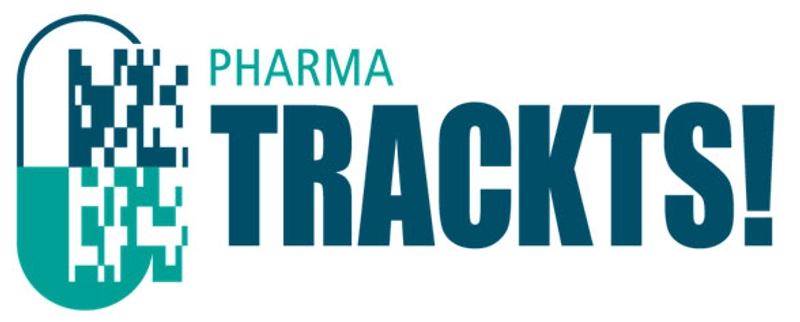
Pharma TRACKTS!
Pharma TRACKTS! – The Leading Event on Serialization & Traceability in the Pharmaceutical Industry
Set against the backdrop of Berlin’s vibrant innovation scene, Pharma TRACKTS! is recognized as the premier conference focusing exclusively on serialization, traceability, and track & trace compliance in the pharmaceutical sector. Held at the Maritim proArte Hotel, the event brings together more than 150 leading industry experts to engage in critical conversations shaping the future of pharmaceutical supply chains.
In an industry where precision and transparency are paramount, seamless tracking and tracing of pharmaceutical products has become non-negotiable. From safeguarding product authenticity to preventing counterfeiting and protecting patient safety, serialization and compliance with evolving regulations are core challenges facing pharmaceutical companies worldwide.
Why Serialization and Traceability Are Essential in Pharma
The pharmaceutical industry operates under intense scrutiny and with good reason—lives depend on its ability to deliver safe, authentic medications without compromise. That’s why the topics of serialization and track & trace have taken center stage in industry discussions and regulatory frameworks.
The objectives of serialization and traceability systems are multifaceted:
Preventing counterfeit products from entering the supply chain
Ensuring product authenticity from manufacturer to patient
Complying with global regulations, such as the EU Falsified Medicines Directive (FMD) and the U.S. Drug Supply Chain Security Act (DSCSA)
Enabling product recalls with speed and precision
Improving overall supply chain visibility and responsiveness
At Pharma TRACKTS!, each of these challenges is addressed head-on through expert-led panels, technical sessions, and real-world case studies.
Key Technologies Empowering Track & Trace
The success of pharmaceutical traceability hinges on a combination of well-integrated technologies. While barcodes and 2D Data Matrix codes have become standard, new developments in RFID (Radio-Frequency Identification) and IoT integration are pushing the boundaries of what’s possible in monitoring pharmaceutical logistics.
Participants at Pharma TRACKTS! can explore and discuss:
Serialization architectures – End-to-end solutions that ensure compliance with regional and global mandates
RFID tagging – Reducing human error and enabling automated product verification
Blockchain solutions – Creating tamper-proof records to enhance transparency across the supply chain
Cloud-based platforms – For storing and exchanging traceability data across international operations
AI-driven analytics – Using machine learning to detect anomalies and predict potential disruptions
These technologies are not theoretical—they are in practice and on display, discussed in-depth during the event’s hands-on workshops and vendor presentations.
Regulatory Compliance: The Driving Force Behind Innovation
One of the most pressing topics at Pharma TRACKTS! is compliance with new and emerging pharmaceutical regulations. As governments and agencies tighten their requirements for serialization and traceability, pharma companies are under increasing pressure to modernize systems and processes.
Current and emerging regulatory frameworks discussed at the event include:
The EU Falsified Medicines Directive (FMD) and its updates
The U.S. DSCSA final phase implementation
Regional requirements in India, Brazil, Russia, and China
WHO guidelines and international best practices
Implications of post-COVID supply chain transformation
These sessions help regulatory affairs professionals, IT leaders, and compliance officers stay ahead of deadlines and ensure that their systems are audit-ready and fully interoperable with international partners.
Networking with Industry Leaders and Innovators
One of the standout features of Pharma TRACKTS! is the curated opportunity to network with serialization, traceability, and supply chain professionals from around the globe. With attendees representing pharmaceutical manufacturers, logistics providers, regulatory bodies, and technology vendors, the event creates fertile ground for new partnerships and collaborative projects.
Networking opportunities include:
One-on-one business meetings arranged through the event platform
Interactive roundtables focused on niche topics like aggregation and returns verification
Evening networking receptions for informal discussions
Innovation pitches where tech providers showcase emerging solutions
User group sessions hosted by solution vendors for deeper technical dives
These sessions allow for both strategic alignment and detailed technical conversations that can translate into real-world implementation.
Engaging Content: From Strategy to Execution
What truly distinguishes Pharma TRACKTS! from other industry events is the depth and focus of its agenda. Rather than skimming the surface, the event dives deep into the practical aspects of implementing serialization and traceability systems in real-world contexts.
Content highlights include:
Case studies from leading pharma companies and CMOs
Panel discussions on the future of digital supply chains
Workshops on technology integration and vendor selection
Live demos of serialization platforms, label printers, and scanning technologies
Strategic sessions on aligning serialization with corporate ESG goals
Attendees leave the event not only with knowledge but with practical frameworks and actionable insights tailored to their unique business needs.
Who Should Attend Pharma TRACKTS!?
Because of its specialized content and high-level participation, Pharma TRACKTS! is ideal for professionals across multiple departments within pharmaceutical operations. Attendees typically include:
Serialization and traceability project managers
Regulatory affairs specialists and compliance officers
Supply chain directors and logistics coordinators
IT architects and digital transformation leads
CMO and packaging partners
Solution providers and system integrators
This diversity ensures that conversations cover both strategic direction and hands-on technical implementation.
Pharma TRACKTS! – More Than a Conference, a Strategic Milestone
In a world where patient safety, product integrity, and regulatory compliance are more critical than ever, Pharma TRACKTS! has emerged as a cornerstone event for the pharmaceutical industry. With its focus on seamless tracking and tracing, the event helps companies anticipate challenges, embrace innovation, and confidently navigate the evolving regulatory landscape.
By attending Pharma TRACKTS! in Berlin, pharmaceutical professionals don’t just keep pace with industry changes—they help define the future of pharmaceutical serialization and traceability.
Whether your goal is to meet compliance deadlines, upgrade your supply chain technology, or forge strategic alliances, Pharma TRACKTS! is the event where it all comes together.

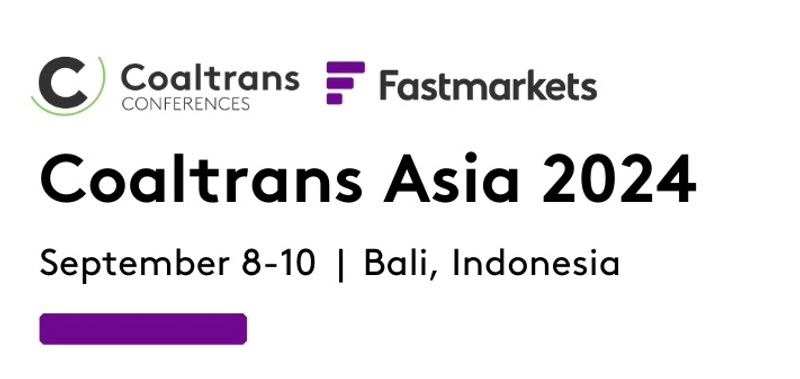
Coaltrans Asia
Coaltrans Asia: Three Decades of Shaping the Future of Coal in a Changing Energy Landscape
For over 30 years, Coaltrans Asia has stood as the largest and longest-running coal industry event in Asia, bringing together the most influential leaders, producers, energy companies, and policymakers to discuss the evolving coal value chain. In an era where global energy markets are undergoing rapid transformation, Coaltrans Asia remains the premier platform to connect, negotiate, and strategize face-to-face with the industry’s key players.
Power, Policy, and Progress: Coal's Role in the Global Energy Transition
As the world pivots toward cleaner energy sources, coal continues to hold a complex but critical position in global energy markets. Coaltrans Asia captures this tension by providing a space where the geopolitical and economic influences of coal are analyzed alongside the urgent demands of the energy transition.
This year, marking its 30th anniversary, Coaltrans Asia will gather more than 1,000 industry peers in Bali. The event offers unparalleled opportunities to revisit the past three decades of coal industry developments while embracing new strategies for a diversified and sustainable future. The event’s new branding as CT Asia reflects this broadened focus, acknowledging the sector’s evolution as it integrates into the wider energy transition dialogue.
What Makes Coaltrans Asia the Must-Attend Event in the Region?
Coaltrans Asia’s reputation is built on its ability to convene an unmatched spectrum of expertise and influence. From ministerial-level insights to detailed market analysis, the summit addresses the key issues shaping the coal supply chain:
Trade dynamics and contract negotiations
Market access and regulatory frameworks
Technological advancements in coal utilization
Environmental policies and carbon management strategies
Infrastructure and logistics challenges
This multi-faceted approach attracts producers, traders, utilities, and industrial consumers, all seeking to navigate the rapidly evolving market with foresight and agility.
Connecting Industry Leaders to Shape the Future
At its core, Coaltrans Asia is about relationships—building and strengthening networks that drive business and innovation across Asia’s coal markets. The event facilitates direct engagement among senior executives, policy-makers, investors, and technical experts. These interactions are invaluable for identifying new business opportunities, solving industry challenges, and setting a collective agenda for the sector’s future.
The mix of high-level panel discussions, focused workshops, and informal networking sessions ensures that participants gain actionable insights and build meaningful partnerships.
Embracing Change: CT Asia’s Broadened Scope
Recognizing the shifting energy landscape, Coaltrans Asia has expanded its scope beyond traditional coal trading to include discussions on how the coal sector can adapt and contribute to broader energy goals. The rebranding to CT Asia signals a commitment to embracing innovation and sustainability without losing the core strengths of the coal industry.
This includes exploring cleaner coal technologies, carbon capture and storage (CCS), and the integration of coal-fired power with renewable energy systems. By doing so, CT Asia remains relevant to both long-standing coal stakeholders and new entrants focused on the energy transition.
Why Attend CT Asia?
Participating in CT Asia offers distinct advantages for anyone involved in the coal and energy sectors:
Access to Industry Leaders: Connect with over 1,000 peers, including top executives and government officials.
Insightful Content: Gain up-to-date knowledge on policy shifts, market trends, and technological innovations.
Business Opportunities: Engage in negotiations and partnerships that can accelerate your strategic goals.
Historical Perspective and Future Vision: Reflect on 30 years of coal market evolution while preparing for the sector’s future challenges and opportunities.
Celebrating Legacy While Driving the Future
As Coaltrans Asia celebrates its 30th anniversary, it stands as a testament to resilience and adaptability in a sector facing significant change. The event remains a vital hub for the coal industry in Asia, committed to fostering dialogue, innovation, and collaboration as it navigates the energy transition.
By evolving into CT Asia, the summit signals its readiness to lead conversations that ensure coal’s role in a diversified, low-carbon energy future remains constructive and forward-thinking.

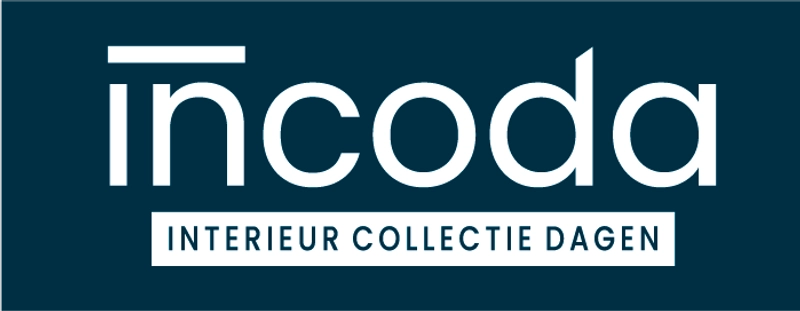
Interior Collection Days
Discover Design Excellence at Interior Collection Days: A Hub for Interior Professionals
Interior Collection Days is more than just an industry event—it's a curated experience that places interior professionals at the very center of creativity, innovation, and craftsmanship. Designed as a high-level B2B gathering, the event caters specifically to interior designers, project designers, decorators, and decision-makers in the design industry.
This event opens a unique door for attendees to explore the newest collections, trend-setting design directions, and boundary-pushing concepts from both legacy brands and emerging talents in the field. Hosted in a sophisticated setting that mirrors the design-forward ethos of its exhibitors, Interior Collection Days offers a multi-dimensional experience: from curated showrooms and immersive installations to hands-on masterclasses and expert-led sessions.
A Curated Environment for Serious Design Professionals
Unlike conventional trade fairs, Interior Collection Days is built with a focus on curation and discovery. Every exhibitor is carefully selected to represent excellence in design, authenticity in materials, and innovation in concept. The result is an intimate yet dynamic space that promotes meaningful connections and in-depth exploration.
Attendees include a range of industry professionals, such as:
Interior architects and space planners
Residential and commercial project managers
Furniture and textile designers
Boutique showroom buyers
Hotel and hospitality design consultants
These professionals come seeking more than just product catalogs—they come for inspiration, education, and collaboration.
Pop-Up Showrooms That Tell a Story
One of the standout features of the Interior Collection Days is the use of pop-up showrooms. These aren’t just product displays—they are immersive, story-driven environments that help attendees experience materials, colors, and shapes in a real-life context.
Exhibitors use these spaces to present:
New furniture collections blending modern and classic elements
Decorative textiles featuring seasonal palettes and artisanal techniques
Lighting solutions that harmonize with form and function
Surface finishes and wall coverings that speak to tactile and visual luxury
Interior accessories from mirrors to tableware that complete a space
Each installation is designed to feel like a functional, curated room—offering visitors a tactile, emotional connection to the products on display.
Elevating Expertise: Masterclasses by Design Leaders
Beyond the visual experience, Interior Collection Days sets itself apart through education-focused programming. Each day includes a lineup of masterclasses and interactive talks led by prominent names in interior design and related fields.
These sessions are designed to help attendees:
Stay informed on emerging trends and color forecasts
Deepen their understanding of material innovation and sustainable design
Learn practical tips on project execution and client communication
Gain insights into branding, client acquisition, and digital presence
Participate in live Q&As and portfolio reviews with design mentors
The goal is simple: equip attendees with actionable knowledge they can apply directly in their professional practice.
Why Interior Collection Days Stands Out in the Design Calendar
While the interior design world has no shortage of events and exhibitions, Interior Collection Days offers a specialized, high-touch format that’s perfectly tailored for design professionals. The scale is intentional—not overwhelming—allowing for focused attention, relaxed exploration, and genuine conversations with exhibitors and fellow attendees.
Here’s why this event is quickly becoming a must-attend gathering for the design community:
Premium, trade-only access — No crowds of casual visitors, just real professionals.
Selective brand presence — You see only what matters: design-forward, relevant, and inspiring collections.
Focused trend immersion — Attendees leave with clarity on what’s next in materials, colors, and space planning.
Collaborative atmosphere — A space where ideas are exchanged freely and new partnerships take root.
Masterclass-driven value — Your time isn’t just spent browsing; it’s spent learning from industry leaders.
Networking That Builds Real-World Partnerships
A major strength of Interior Collection Days lies in its relaxed-yet-professional networking environment. Whether it’s over coffee in a styled lounge or during a breakout Q&A session, attendees are encouraged to connect and collaborate.
The event attracts exhibitors and professionals not just from the host country but from across Europe, Asia, and North America—fostering cross-border opportunities and collaborations. Many visitors use this event to:
Source exclusive collections for upcoming design projects
Meet with boutique manufacturers to develop custom product lines
Discover new material suppliers for sustainable building and interiors
Connect with editorial contacts from design media and trend publications
Key Themes and Product Categories You’ll Explore
Visitors to Interior Collection Days will encounter a curated spectrum of offerings, reflecting both global trends and region-specific innovation.
Featured categories include:
Contemporary and classic living room furniture
Bespoke kitchen and bath design solutions
Designer textiles and wallcoverings
Lighting fixtures with artisanal and high-tech influence
Smart home integrations with seamless aesthetics
Outdoor and leisure furnishings for modern lifestyles
Decorative ceramics, glassware, and artisanal objects
With a strong emphasis on storytelling, heritage, and craftsmanship, the show encourages a deeper look at how objects influence space—and how space, in turn, shapes emotion.
Interior Collection Days: A Bridge Between Vision and Reality
For interior professionals, creativity is only part of the equation. The other half lies in execution—finding the right partners, the best materials, and staying ahead of the ever-evolving design curve. Interior Collection Days bridges the gap between vision and reality, helping designers discover not only what’s beautiful, but what’s buildable, sustainable, and desirable to today’s clients.
As the industry continues to move toward more meaningful, story-rich environments, this event provides a timely opportunity to connect with the pulse of design innovation—through a lens that values quality over quantity, and storytelling over spectacle.
Whether you're an established design studio looking for exclusive collaborations or a boutique hotel group planning your next concept, Interior Collection Days offers a refined, resource-rich platform to fuel your creative and commercial goals.
From conceptual showrooms to trend briefings, from networking lounges to hands-on sessions, every corner of this event is built with the modern design professional in mind.


CFPE Xiamen Printing and Packaging Corrugated Color Box Industry Expo
CFPE Xiamen Printing and Packaging Expo: A Dynamic Hub for Innovation and Sustainable Solutions
The CFPE Xiamen Printing and Packaging Corrugated Color Box Industry Expo is gearing up to become one of the most influential events in Asia's printing and packaging sector. Set against the vibrant backdrop of the Xiamen International Conference & Exhibition Center in coastal China, this exhibition will spotlight cutting-edge innovations in corrugated color box technology, sustainable packaging, and advanced printing methodologies. For businesses, creators, and industry professionals, it offers an exceptional opportunity to explore, learn, and connect.
With the packaging industry undergoing rapid transformation, largely driven by environmental consciousness, digital integration, and consumer demand for customization, events like CFPE Xiamen serve as a compass, guiding companies toward future-ready solutions.
Why CFPE Xiamen Matters in Today’s Packaging Landscape
The importance of this expo lies not only in its size or location but in its timely relevance. As global markets shift toward eco-conscious practices, and the demand for smarter, more functional packaging rises, this event becomes a key focal point for those seeking sustainable answers.
Attendees at CFPE Xiamen can expect:
Innovative corrugated box solutions tailored to e-commerce, retail, and logistics
High-efficiency printing technologies using reduced waste and energy
Eco-friendly inks, coatings, and adhesives
Fully automated production systems and smart packaging equipment
Panel discussions and forums on industry challenges and forward-thinking solutions
Whether you're a packaging supplier, a machinery manufacturer, a creative designer, or a startup aiming to disrupt traditional packaging workflows, CFPE provides direct access to cutting-edge trends shaping the industry.
An International Platform in the Heart of Xiamen
What makes the CFPE Xiamen Printing and Packaging Expo particularly noteworthy is its international orientation. While deeply rooted in China’s rich manufacturing ecosystem, the event reaches far beyond domestic borders. Exhibitors and visitors are expected from across Asia, Europe, and the Americas, turning the event into a multicultural meeting ground for professionals across the packaging value chain.
This global perspective provides fertile ground for:
Cross-border business partnerships
Knowledge exchange about regional packaging regulations and sustainability goals
Technology transfer and licensing opportunities
Discussions on global supply chain adaptability in times of uncertainty
Highlights of the Exhibition
Visitors will have the chance to explore a wide array of exhibits and live demonstrations showcasing the latest achievements in the corrugated packaging and color box industries. Key focus areas will include:
1. Corrugated Color Box Innovation
Corrugated boxes are evolving from simple brown containers into branded, color-rich carriers of marketing value. Exhibitors will present new structural designs, eco-friendly coatings, and durable printing finishes that align with modern branding strategies and logistics needs.
2. Green and Sustainable Packaging
Sustainability is no longer an option—it’s a necessity. CFPE Xiamen places heavy emphasis on biodegradable materials, low-impact inks, waste-reducing machinery, and closed-loop recycling systems.
3. Smart Printing Technology
Digital, offset, and flexographic solutions will be on full display, with an emphasis on:
Speed and scalability
High-definition print quality
Low energy consumption
Remote monitoring and diagnostics
What Makes CFPE a Must-Attend for Industry Professionals?
Beyond the impressive technological showcase, the CFPE Expo offers something equally valuable: community and insight. This isn’t just an exhibition—it’s a three-day immersion into the most pressing topics and exciting developments in the packaging space.
Attendees will benefit from:
Seminars and expert panels on automation, smart logistics, and post-pandemic consumer behavior
Networking lounges where innovators, suppliers, and buyers meet informally
Live demonstrations and real-time product testing
Workshops on designing for recyclability and brand impact
These elements combine to make the expo a holistic experience, offering not only product sourcing opportunities but also strategic understanding of where the industry is headed.
Who Should Exhibit or Attend?
The scope of the event is intentionally broad, bringing together participants from a variety of sectors and industries. The CFPE Xiamen Expo serves as a catalyst for cross-sector collaboration and innovation.
Key visitor and exhibitor profiles include:
Corrugated packaging manufacturers
Folding carton and box designers
Printing technology providers
Packaging automation companies
Brand owners and marketers
Sustainability consultants and R&D specialists
Logistics and e-commerce businesses
Material suppliers (adhesives, coatings, paperboard, etc.)
The Future of Packaging Begins Here
As the packaging industry continues to shift toward more sustainable, intelligent, and design-driven solutions, events like CFPE Xiamen are more than just business gatherings—they are vital learning environments. They provide access not only to state-of-the-art tools and techniques, but also to the ideas and relationships that drive true transformation.
In a world where packaging is expected to perform, protect, inform, and now even connect (through smart packaging), staying ahead of trends is no longer optional. It's essential.
The CFPE Xiamen Printing and Packaging Corrugated Color Box Industry Expo is exactly the kind of industry-defining event where these future-focused conversations happen—and where change is not just predicted, but demonstrated in real time.
In summary, whether you're looking to streamline production, find eco-conscious materials, explore color printing advancements, or simply stay connected with the packaging community, CFPE Xiamen delivers the insight, access, and momentum needed to grow and evolve.


The Travel Healthcare Conference (TravCon)
TravCon: The Ultimate Gathering for Travel Healthcare Professionals in the U.S.
Every September, Las Vegas lights up with more than just neon signs it becomes the epicenter of the travel healthcare world. The Travel Healthcare Conference (TravCon) brings together thousands of professionals who specialize in travel nursing and allied health. More than just a professional event, TravCon is the largest traveling healthcare conference in the United States, serving as a celebration, educational opportunity, and networking hub all rolled into one.
For over a decade, TravCon has created a unique space for healthcare travelers to come together, grow their knowledge, earn continuing education credits, and share their journeys with like-minded peers. Whether you're a seasoned travel nurse, a first-year allied health traveler, or simply exploring the lifestyle, this conference has something for you.
More Than a Conference: A Celebration of Travel Healthcare
What sets TravCon apart from other industry events is the sense of community and appreciation that permeates every moment. TravCon is not only a conference it’s the event of the year for travelers. Attendees don’t just attend sessions; they connect, relax, get inspired, and even get spoiled by the event’s many generous exhibitors.
Imagine walking into a venue filled with people who understand your unique lifestyle the long hours, the frequent moves, the thrill of discovering new places. At TravCon, you're not just another healthcare professional. You're part of a nationwide network of adventurous, dedicated individuals shaping the future of healthcare delivery across the country.
Highlights That Make TravCon an Unmissable Event
CE Opportunities: Access to accredited continuing education (CE) sessions tailored to travel nurses and allied health professionals.
Industry Experts: Hear from thought leaders, travel veterans, and recruiters who truly understand the field.
Exhibitor Giveaways: Be celebrated with free gear, travel-friendly swag, and premium resources from leading healthcare companies.
Networking Events: From welcome parties to post-conference mixers, there's no shortage of chances to connect.
Career Growth: Learn about new destinations, contract negotiation, licensure updates, and more.
A Legacy of Supporting Travelers Since 2008
Connecting travelers since 2008, TravCon has grown from a small meetup into the definitive event for the traveling healthcare industry. Over the years, it has expanded to include a broad spectrum of allied health professionals including therapists, radiologic technologists, lab techs, and more.
What started as a way to bring travelers together has become a powerful force in shaping the conversation around travel healthcare. Today, TravCon is recognized for its commitment to quality education, community support, and industry-wide advancement.
The Core Focus of TravCon
At its heart, TravCon is about:
Education: Offering practical, relevant knowledge to improve patient care and boost traveler confidence.
Empowerment: Helping attendees navigate contracts, housing, benefits, and career transitions.
Connection: Building a strong, supportive community across states, specialties, and experience levels.
Celebration: Honoring the vital role travel professionals play in the U.S. healthcare system.
Learn From the Best: Experts Who Live the Traveler Life
TravCon brings you the best and most knowledgeable individuals to teach you all things travel nursing and allied health. Unlike some healthcare conferences that focus on high-level theory, TravCon’s sessions are practical, relatable, and delivered by people who’ve walked the walk.
Speakers include:
Experienced travel nurses and allied health pros
Legal experts in healthcare contracting
Recruiters and agency leaders
Financial planners for mobile professionals
Travel bloggers and influencers who share personal insights
Whether you're learning how to avoid tax pitfalls, choosing the best housing apps, or hearing firsthand stories from the ER frontlines, the advice you’ll receive is actionable and relevant.
What You Can Expect at TravCon
To give you a sense of just how multifaceted the experience is, here’s what a typical TravCon journey includes:
Pre-Conference Bootcamps
Crash courses in travel basics
Agency overviews and credentialing tips
Resume building and interview preparation
Core Conference Days
Dozens of CE-accredited workshops
Large-scale keynotes
Specialty breakout rooms and skill labs
Exhibitor Hall Experience
150+ booths featuring agencies, tech, insurance, and more
Free travel gear, raffles, and giveaways
On-the-spot job leads and recruiter contacts
Community & Fun
Nightly socials and city tours
Yoga sessions and wellness lounges
Photo ops, swag bags, and exclusive parties
Who Should Attend TravCon?
This event isn’t just for travel nurses. TravCon embraces a full range of professionals from the mobile healthcare workforce. If you’re part of the following groups, TravCon is designed for you:
Travel Nurses (RNs, LPNs)
Allied Health Professionals (RTs, PTs, OTs, Sonographers, etc.)
Medical Imaging & Lab Technicians
New Travelers Looking to Enter the Field
Recruiters, HR Professionals, and Healthcare Agencies
Healthcare Entrepreneurs and Educators
Las Vegas: A Fitting Stage for the Nation’s Largest Travel Healthcare Conference
Why Las Vegas? Aside from its vibrant energy and world-class venues, Vegas is a symbolic host city for a conference dedicated to motion and possibility. Its central location and travel appeal make it ideal for professionals coming in from every corner of the country.
Las Vegas also mirrors the spirit of TravCon bold, dynamic, and never boring. Between sessions, attendees can enjoy shows, spa visits, poolside relaxation, and even zip-lining through the city skyline.
Looking Ahead: The Future of TravCon
TravCon’s journey doesn’t stop with the annual event. Organizers are exploring year-round engagement opportunities, including virtual seminars, online CE platforms, and regional meetups. As the travel healthcare sector continues to grow, so too does the need for ongoing education, support, and community and TravCon is ready to meet that challenge.
The Travel Healthcare Conference offers a premier experience for travelers, featuring CE opportunities, expert insights, networking, and valuable exhibitor perks all centered on travel nursing and allied health education. More than just a conference, TravCon is the ultimate destination for healthcare professionals on the move.
Whether you're looking to learn, connect, or just have a blast with fellow travelers, there's no better place than TravCon. After all, it’s not just about where you’ve been it’s about where you’re going.


POWTECH
POWTECH, en alianza con TechnoPharm, se erige como un foro de primer nivel para los profesionales que se dedican al procesamiento de materiales en polvo, a granel y granulares dentro de las industrias química y farmacéutica. Esta importante exposición mundial, que se celebra en Núremberg (Alemania) cada 18 meses (excepto los años en que la Exposición Mundial ACHEMA tiene lugar en Fráncfort), es un evento fundamental para quienes se dedican a las tecnologías analíticas y de procesamiento mecánico.
POWTECH es reconocida por su amplia exhibición de equipos y tecnologías de vanguardia. La exposición abarca una amplia gama de sectores, incluida la producción química y farmacéutica, la fabricación de alimentos y piensos, la construcción y los materiales de construcción, así como las industrias de vitrocerámica, procesamiento de madera y pulpa y papel. Para estas industrias son fundamentales las tecnologías clave como el transporte, la molienda, la molienda, la mezcla y el tamizado.
Como evento internacional líder, POWTECH ofrece algo más que una exposición expansiva; establece tendencias y aborda problemas críticos de la industria a través de su programa complementario. El evento sirve como una plataforma crucial para descubrir soluciones innovadoras en materia de reducción de tamaño, cribado, mezcla, transporte, dosificación y granulación, entre muchos otros procesos.
Las estadísticas clave de POWTECH destacan su importancia: casi el 49% de los expositores logran sus objetivos principales en el evento, el 93% de los visitantes influyen en las decisiones de compra de sus empresas y el 87% de los participantes anticipan actividades de seguimiento notables.
Los expositores de POWTECH cubren un amplio espectro de áreas que incluyen materias primas, equipos y sistemas para productos sólidos, semisólidos y líquidos, instrumentos para producir productos estériles, equipos de control de procesos, tecnología de envasado y llenado, control de limpieza e higiene, recolección y reciclaje de residuos, protección ambiental y servicios industriales y de seguridad ocupacional.
POWTECH sigue siendo una reunión vital para los expertos de la industria que buscan las últimas innovaciones y avances en procesamiento mecánico y análisis, lo que garantiza que el evento se mantenga a la vanguardia del desarrollo tecnológico y la creación de redes industriales.

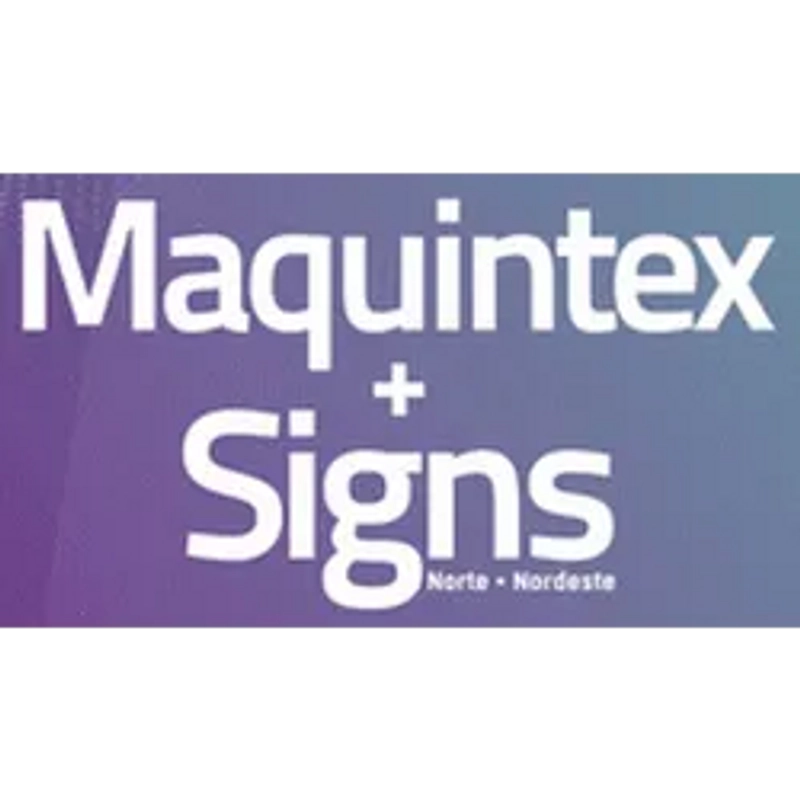
MAQUINTEX + SIGNS - NORTH & NORTHEAST
MAQUINTEX + SIGNS - NORTH & NORTHEAST está lista para causar sensación en las industrias textil y de la comunicación visual este septiembre, y tendrá lugar en la vibrante ciudad de Fortaleza, Brasil, en la Av. Washington Soares, 999 años, Edson Queiroz. Como el principal evento de este tipo en la región, ofrece una plataforma única para que los profesionales muestren sus últimas innovaciones, interactúen con expertos de la industria y establezcan contactos con sus pares
.Este evento presenta una oportunidad de oro para que los expositores presenten sus productos y servicios de vanguardia a un público objetivo. Con un enfoque en las últimas tendencias y tecnologías, MAQUINTEX + SIGNS - NORTH & NORTHEAST está preparada para ofrecer a los asistentes una visión inestimable sobre el futuro de los sectores de la comunicación visual y textil
.Para los asistentes, el evento promete una experiencia enriquecedora llena de oportunidades para adquirir conocimientos y descubrir las tendencias emergentes. Los líderes e innovadores de la industria estarán presentes para compartir su experiencia, ofreciendo una gran cantidad de información que puede ayudar a los asistentes a mantenerse a la vanguardia en un mercado competitivo
.Los expositores, en particular, considerarán que el evento es ventajoso para conectarse con clientes potenciales y forjar nuevas asociaciones. La oportunidad de mostrar sus ofertas en un entorno tan dinámico puede generar valiosas relaciones comerciales y una mayor visibilidad dentro de la industria
.MAQUINTEX + SIGNS - NORTH & NORTHEAST es más que una simple feria comercial; es un centro de aprendizaje y conexión. Es un destino esencial para cualquier persona involucrada en las industrias textil y de la comunicación visual, ya que garantiza que los participantes estén bien informados sobre los últimos avances y preparados para aprovechar las nuevas oportunidades. No pierdas la oportunidad de ser parte de un evento que promete dar forma al futuro de estos
campos dinámicos.

OMAN MINERALS & MINING EXHIBITION & CONFERENCE
La Exposición y Conferencia sobre Minerales y Minería de Omán se erige como un evento comercial internacional fundamental, con el objetivo de establecerse como una plataforma comercial clave para los sectores metalúrgicos y no metálicos en rápida evolución en Omán. Esta conferencia no solo muestra los servicios y tecnologías de vanguardia pertinentes a la industria minera, sino que también responde a la creciente demanda mundial de minerales. Sirve como un foro vital para discutir temas urgentes relacionados con la expansión del sector y, al mismo tiempo, atraer las inversiones necesarias.
Los ricos recursos minerales de Omán lo han posicionado como un destino atractivo para los inversores locales e internacionales. El evento facilita el diálogo entre organizaciones gubernamentales y no gubernamentales, entidades de recursos minerales y varias empresas involucradas en la minería y la exploración. Esta interacción fomenta la colaboración e impulsa las iniciativas destinadas a impulsar el sector minero del país.
Entre los participantes se encuentran organizaciones que se centran en el mármol y el granito, así como empresas que suministran materiales de construcción. Esta representación diversa subraya la interconexión de la industria minera con otros sectores, destacando el papel fundamental de los minerales en la construcción y el desarrollo de infraestructuras. Además, las organizaciones impulsadas por la tecnología que se especializan en el procesamiento de cromita y la minería no metálica desempeñan un papel importante, ya que muestran prácticas innovadoras que mejoran la eficiencia y la sostenibilidad.
La exposición presenta una amplia gama de partes interesadas, incluidos topógrafos geológicos, proveedores de instrumentos geodésicos y fabricantes de equipos metalúrgicos. Esta variada programación garantiza que los asistentes obtengan una visión completa de los últimos avances en tecnología y técnicas mineras. El énfasis en las soluciones de TI y comunicación refleja la creciente importancia del procesamiento y la transmisión de datos en las operaciones mineras modernas.
La seguridad y el cumplimiento también son fundamentales, y la inclusión de empresas especializadas en explosivos y dispositivos voladores garantiza que se destaquen las mejores prácticas. Estas discusiones son cruciales, dados los riesgos inherentes asociados a las actividades mineras.
El evento está alineado estratégicamente con las iniciativas gubernamentales destinadas a fomentar el crecimiento del sector en Omán y en la región más amplia de Oriente Medio. Al atraer inversiones y fomentar las asociaciones, la Exposición y Conferencia sobre Minerales y Minería de Omán está preparada para tener un impacto significativo en el futuro de la industria, contribuyendo a la diversificación económica y al desarrollo sostenible. A través del conocimiento y la innovación compartidos, la conferencia no solo aborda los desafíos actuales, sino que también allana el camino para un sector minero más resiliente en los próximos años

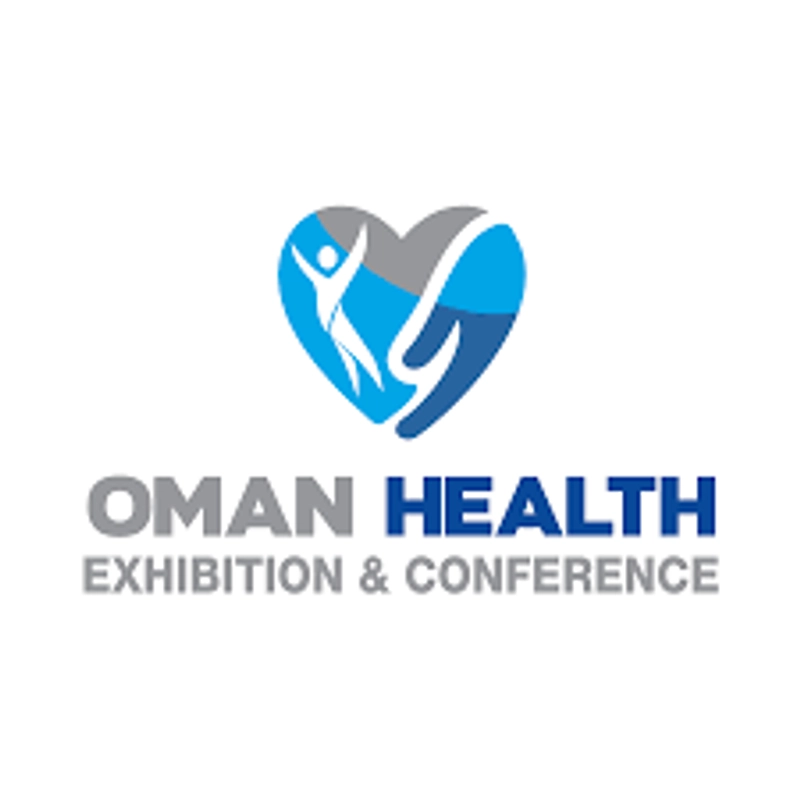
OMAN HEALTH
La Exposición y Conferencia de Salud de Omán se destaca como un evento internacional de primer nivel que subraya el crecimiento y el potencial del sector de la salud de Omán. Esta reunión dinámica no solo destaca los avances en los servicios y tecnologías médicas, sino que también sirve como una plataforma vital para la colaboración entre los profesionales médicos, las organizaciones de salud y el público.
A medida que los asistentes recorren la sala de exposiciones, se encuentran con una amplia gama de productos y servicios presentados por las principales empresas e instituciones de salud. Desde equipos médicos de vanguardia hasta soluciones sanitarias innovadoras presentadas por los mejores hospitales y clínicas, la exposición ofrece una visión general completa de lo que está disponible en el mercado. Con la participación de alrededor de 160 expositores y representaciones de seis países diferentes, el evento fomenta un entorno rico para el intercambio de conocimientos y la creación de redes.
El aspecto del evento relacionado con las conferencias es igualmente significativo, ya que cuenta con 12 sesiones específicas que profundizan en una variedad de temas pertinentes a la industria de la salud. Estas sesiones atraen a aproximadamente 300 delegados, lo que crea una oportunidad para que los profesionales participen en debates significativos sobre las tendencias, los desafíos y las oportunidades emergentes dentro del sector. La combinación de información práctica y puntos de vista estratégicos convierte a la conferencia en un punto culminante clave del evento.
La Exposición y Conferencia sobre la Salud de Omán no solo presenta lo último en tecnología sanitaria, sino que también hace hincapié en la importancia de la colaboración para impulsar el sector. Al reunir a un amplio espectro de participantes, desde profesionales de la medicina hasta responsables de la formulación de políticas sanitarias, el evento crea un ecosistema vibrante que promueve la innovación y el aprendizaje compartido. A
medida que el panorama de la atención médica continúa evolucionando, la Exposición y Conferencia sobre la Salud de Omán sigue siendo un evento esencial para cualquier persona que invierta en el futuro de la atención médica en Omán y en la región en general. Su enfoque en el crecimiento, las oportunidades y el progreso garantiza que los participantes salgan equipados con nuevos conocimientos y conexiones que pueden ayudar a dar forma al futuro de la prestación de servicios de salud.


Sign & Graphic Imaging Middle East
Sign & Graphic Imaging Middle East (SGI Dubai) está lista para elevar el nivel de los sectores de la impresión, la señalización y la imagen con su edición más dinámica hasta la fecha. Como principal exposición comercial de la región, SGI Dubái sirve como punto de encuentro mundial, ya que reúne a visionarios, innovadores y responsables de la toma de decisiones de todo el mundo. El evento ofrece una plataforma única para explorar tecnologías innovadoras, forjar asociaciones estratégicas y descubrir nuevas e interesantes oportunidades de negocio.
SGI Dubai, que se celebra anualmente en el World Trade Center de Dubái (DWTC), se ha establecido firmemente como una de las principales ferias comerciales para las industrias de la señalización, la impresión y los gráficos. El evento atrae a profesionales de todos los sectores de la publicidad, el diseño gráfico y la impresión, y les ofrece una visión profunda de las últimas tendencias, herramientas e innovaciones que dan forma a sus campos. Los visitantes pueden explorar una amplia gama de temas, desde las impresoras de gran formato y la robótica hasta las pantallas digitales, la señalización, la impresión textil e incluso la impresión 3D. La exposición ofrece una muestra completa de las tecnologías que están impulsando el avance de la industria.
Lo que realmente diferencia a SGI Dubai es su énfasis en las innovaciones de vanguardia. El evento destaca las tecnologías avanzadas, como el grabado de precisión, las impresoras multifuncionales, las pantallas LED y la integración de la inteligencia artificial en las aplicaciones de impresión y señalización. Además de mostrar lo último en maquinaria, la feria también presenta una amplia gama de materiales, que incluyen papel, revestimientos murales, textiles, PVC, PET, vinilo y mallas, lo que la convierte en una ventanilla única para los profesionales que necesitan productos y servicios de la más alta calidad.
Dubái, con su icónico horizonte urbano y su reputación como centro de negocios mundial, es el escenario perfecto para un evento centrado en la innovación y el progreso tecnológico. La infraestructura moderna y la ubicación accesible de la ciudad hacen de SGI Dubai un destino fácilmente accesible, ya sea en transporte público o en vehículo privado. Más allá de las oportunidades de negocio, la ciudad en sí misma ofrece una fascinante mezcla de tradición y modernidad, lo que garantiza que cada visita sea una experiencia memorable.
SGI Dubai sigue siendo un evento indispensable para cualquier persona involucrada en las industrias de la señalización, la impresión y la imagen. Con su enfoque en la innovación, las soluciones de alta tecnología y la creación de redes, la feria sigue siendo un evento clave para los profesionales que buscan mantenerse a la vanguardia y descubrir nuevas formas de hacer avanzar sus negocios. Ya sea que desee explorar lo último en tecnología de impresión, descubrir nuevos materiales o establecer valiosas conexiones con la industria, SGI Dubái ofrece todo eso y más en un evento emocionante